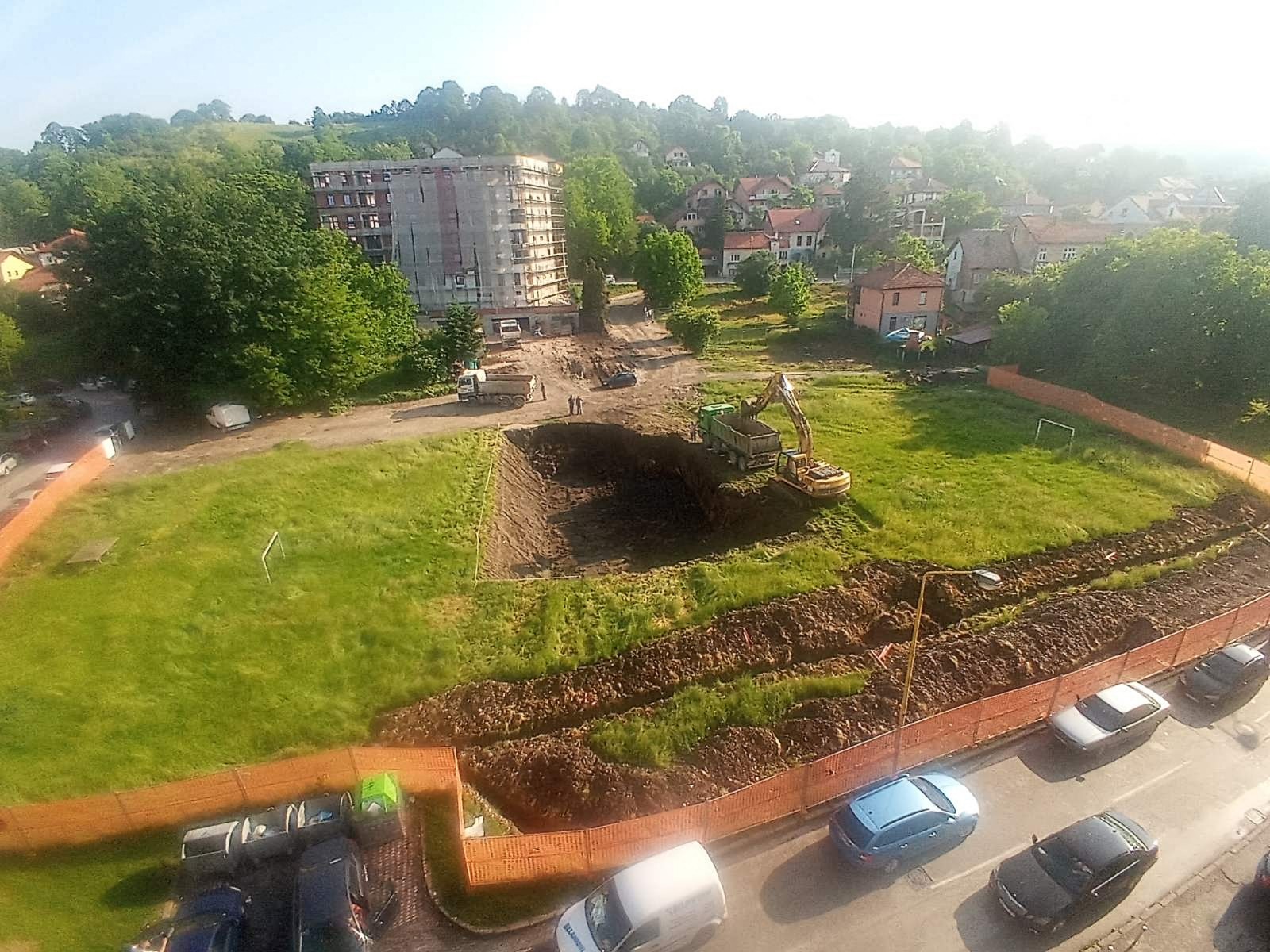Almir Arnaut Beli, on behalf of a larger group of citizens of the Tuzla settlement of Slatina, recently submitted a report to the Prosecutor’s Office of the Tuzla Canton regarding the illegal construction of buildings in the area of the children’s playground popularly known as Marakana. Criminal charges were filed against investors and contractors and city services “for organized crime and corruption”.
The group of tenants of Slatina found that someone favoured investors and changed the regulatory plan without suggestions and comments from citizens regarding the endangerment of the environment, buildings and the health of tenants by building in the area of their settlement. That’s why they decided to seek justice in judicial institutions because no one pays attention to their appeals.
FAVOURING A COMPANY ESTABLISHED BY THE ISLAMIC COMMUNITY
According to the residents of Slatina, there are many reasons against construction: the buildings are cracking due to land subsidence that cannot withstand additional construction, the settlement is already overcrowded according to urban planning and construction standards, and an additional influx of residents would endanger the human rights of the current residents.
Also, the residents of Slatina and beyond are deprived of the only green space in the centre of Tuzla – the popular Marakana playground, where generations of Tuzla residents have grown up for almost five decades.
“We submitted a request to initiate an investigation regarding illegal construction in the local community of Slatina. It started on May 5 and the work is still going on today. In the course of this, we came to the geological study, which also confirms that the citizens were deceived. It is a deception of the public where it is written that there are no deformations and subsidence on the surrounding buildings and land. And these deformations, since we are a city of sinking land and land subsidence, are visible even with the naked eye. And we are convinced that we will be able to prove it in court, but we are also outraged that the construction on the ‘Marakana’ playground has not yet been stopped,” says Arnaut.
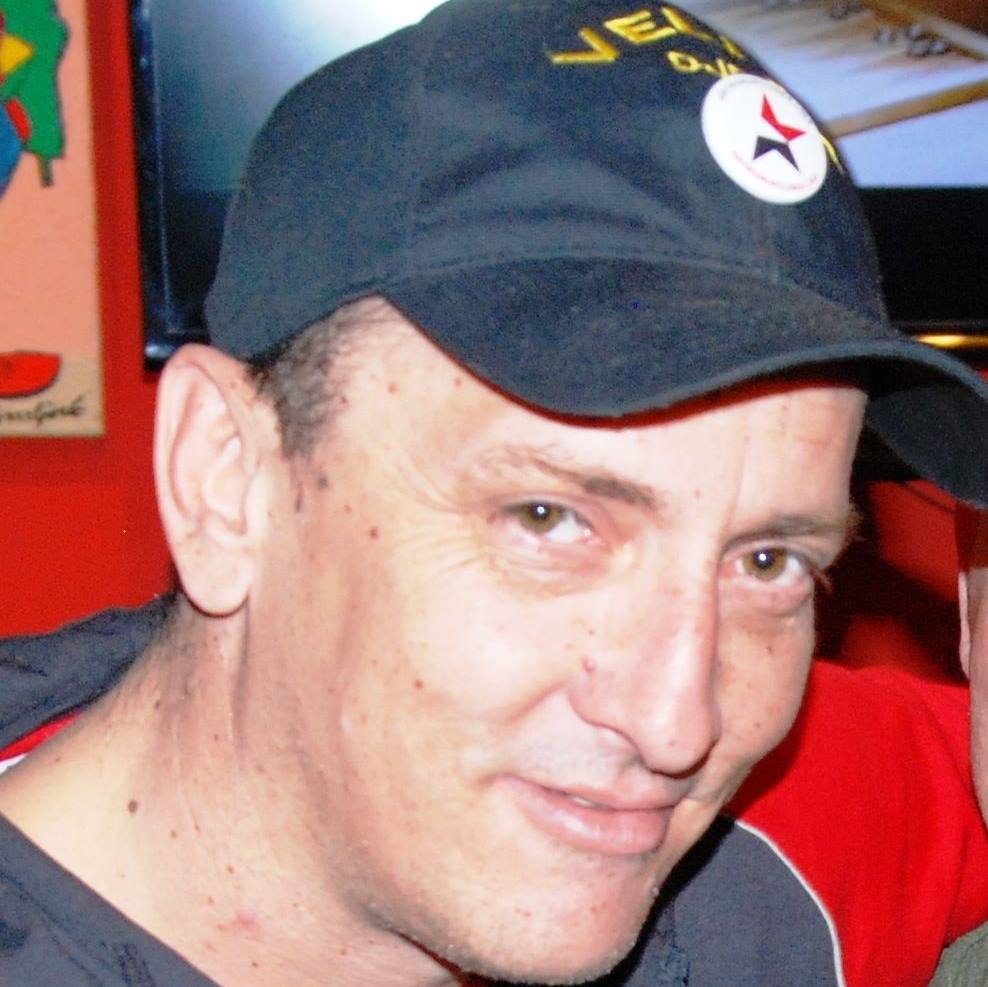
He explains that the “geological survey”, according to which there are no obstacles to new construction, was carried out by a certain Milan Stević in January 2020. It is interesting that the survey was ordered by a company that did not exist at the time of the survey, but was founded only a month later, in February.
“We have no more reason not to doubt that because of the fictitious company, a change in the regulatory plan was not made in the month prior to favour investors,” concludes Arnaut.
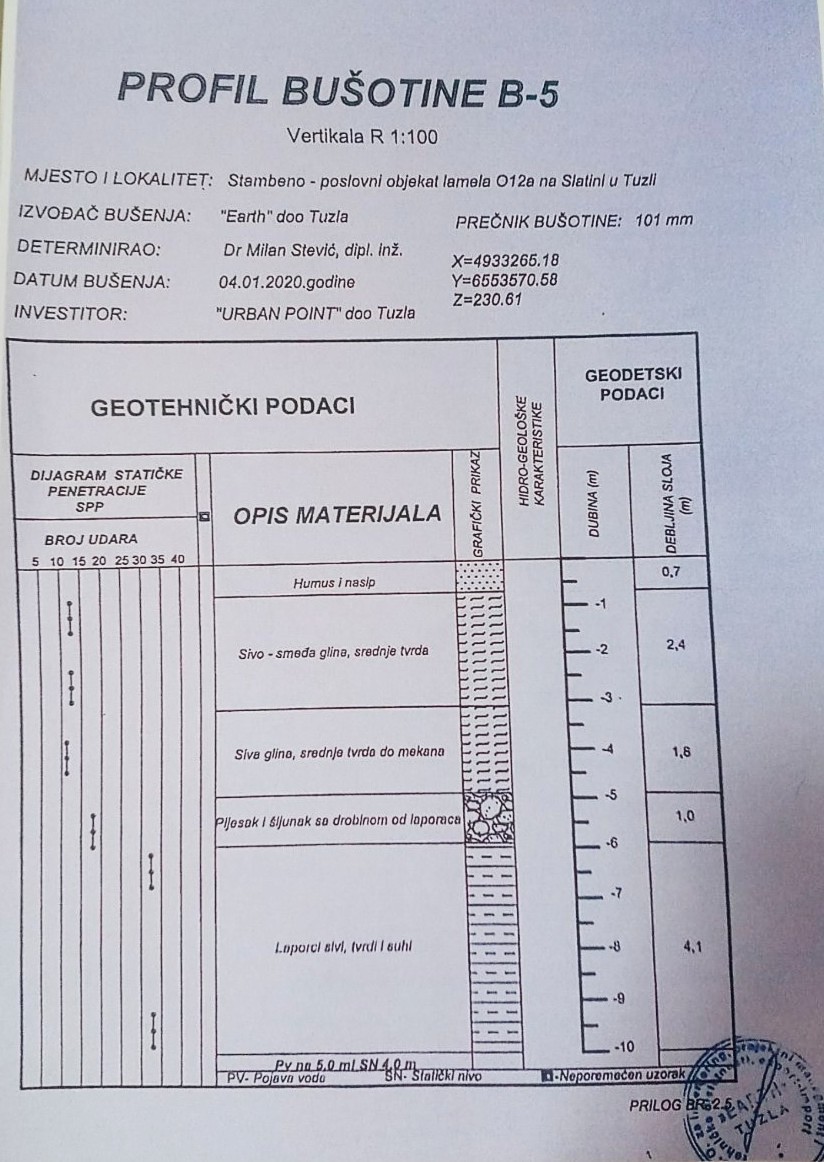
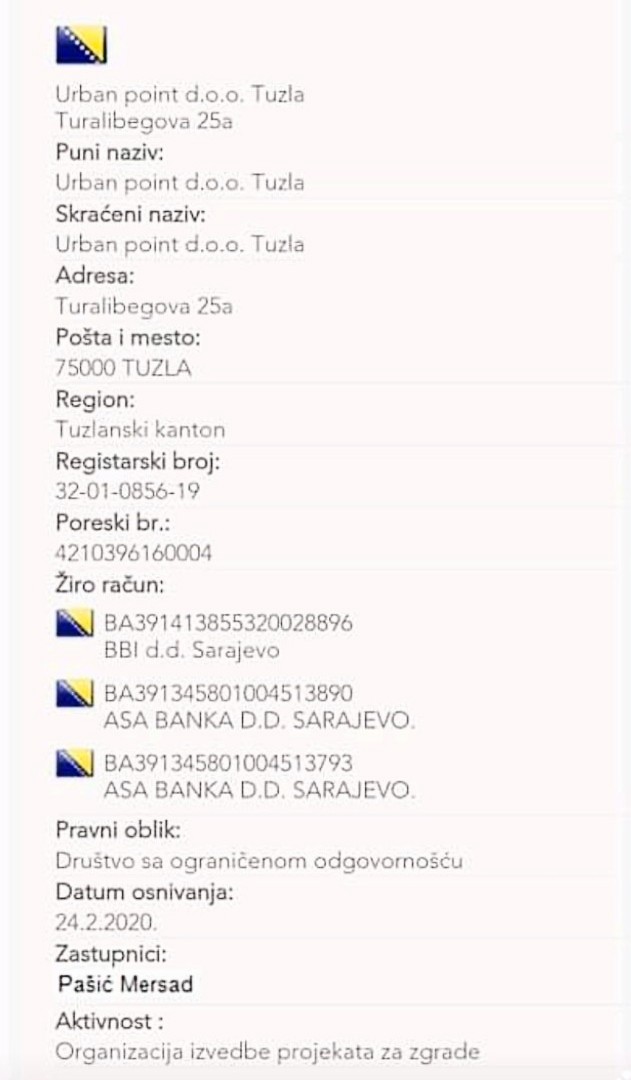
The land on which the new buildings are being built belongs to the foundation, the investor is the company Urban point d.o.o., and the contractor is Sagra d.o.o. We learn that the director of Urban Point is also an employee of the Islamic Community (a lawyer in the Majlis, op.a.), from which it follows that the Islamic Community founded a company that is an investor in the case of construction in Slatina.
The Majlis of the Islamic Community of Tuzla confirms for Inforadar that they are the owners and possessors of the plot of land no. 90/87 KO Tuzla, where the residential and commercial building Slatina 012 a Urban Marakana is being built. They confirm that the investor is Urban point d.o.o., but they do not declare ownership of the company.
However, the evidence irrefutably confirms what it is.
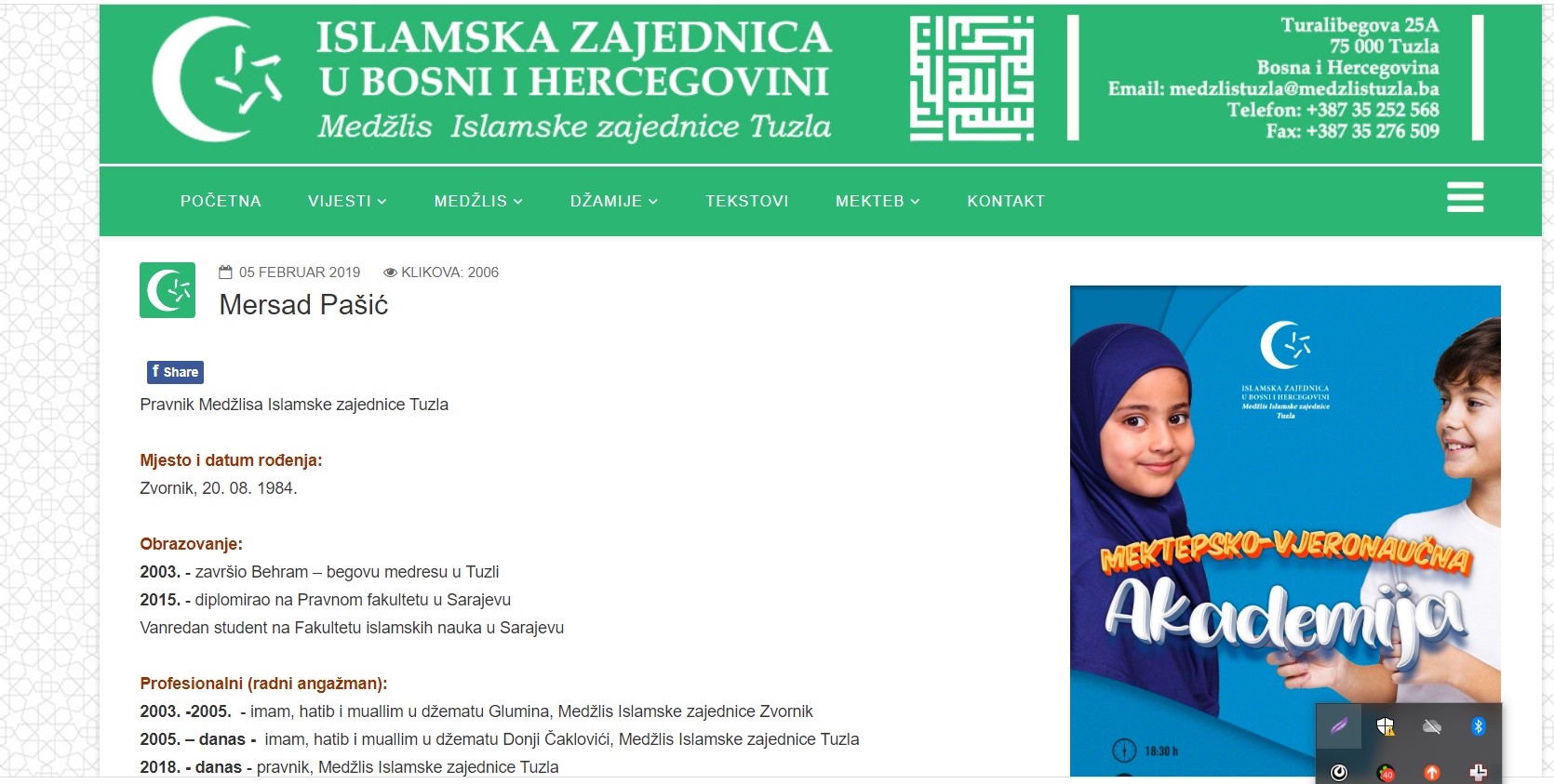
“The building permit is valid and the works are carried out in accordance with all positive legal regulations. The mentioned facility is being built entirely on the land of the Islamic Community”, it is stated in the letter of the Majlis of the Islamic Community Tuzla, in which they also claim that the Law on Real Rights does not apply to this land.
PETITION WITHOUT RESPONSE
When it comes to the building permit, it is indicative that the year of issuance of the permit is indicated on the board near the construction site as 2019, in which the company Urban point d.o.o. – did not exist.
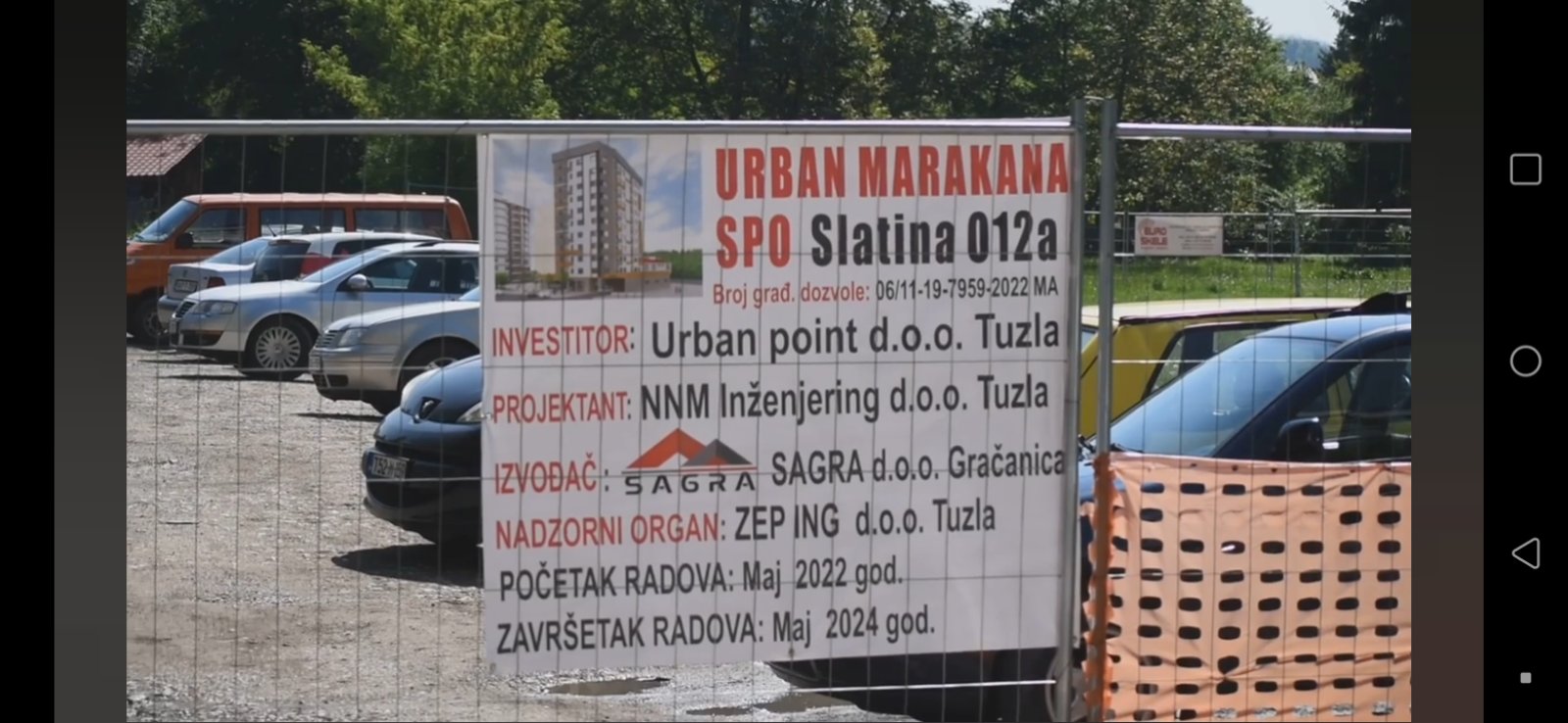
The Islamic Community claims that in this case, it is about the transformation of one type of real estate (land) into another – apartments and business premises.
“The Waqif stipulated in its waqf that the religious activities of mosques are supported by the income obtained by renting out the waqf. Considering the circumstances that the land in question cannot be cultivated, it is turned into another type of real estate that can be rented out and the income can be used to finance the religious activities of mosques”, says the Islamic Community Majlis in Tuzla.
They add that it would be good if there were more sports fields in the cities, “but the Islamic community is not responsible for spatial planning and the adoption of regulatory plans”.
Although this is a completely accurate statement, it is still unusual that the religious institution in this case was not interested in the more priority needs of citizens and believers. Here, the question arises whether, before financing religious activities, it is not more logical to provide people with safe housing, children a place to play, and move the construction of apartments and business premises to a location where none of the above is endangered.
Since the beginning of the fencing of the Marakana playground, a group of Slatina tenants held three public assemblies of citizens where they first addressed those in power and authorities, but they never received answers.
Then a petition against the construction was launched, signed by eight members of the owner’s condominium boards, which is about 1,800 tenants, along with about 800 people who signed it during the work meetings. The silence of the authorities led to citizens submitting a request to initiate an investigation regarding illegal construction in the local community of Slatina.
Almir Arnaut Beli says that the tenants have been threatened by the police and security guards, and therefore expect the help of the judiciary and the public.
“When the bulldozers started, we stood in front of them, called the building inspection and the police, with the intention of proving that illegal construction is being done here. However, the police then told us that they came at the invitation of the investor, they asked us to move away because we would be deprived of our freedom”, says Arnaut.
Tuzla, he reminds, is known for the subsidence of the ground and the cracking of buildings, which was noticed as far back as 1978. Despite this, at the end of 2014, there was a change in the regulatory plans where, as the tenants of Slatina claim, all standards – ecological, construction and urban – were violated.
“When the works started, the streets suddenly started to crack, then our houses started to crack as well. You can see the separation of the walls, and the cracking of the internal walls, it can also be seen in the yard and the house. We also went to complain to the construction inspection in the municipality, which came to us. And they just said ‘yes, yes, it did crack’. And that’s it – that’s all they did”, says Suada Altumbašić, who lives in Slatina.
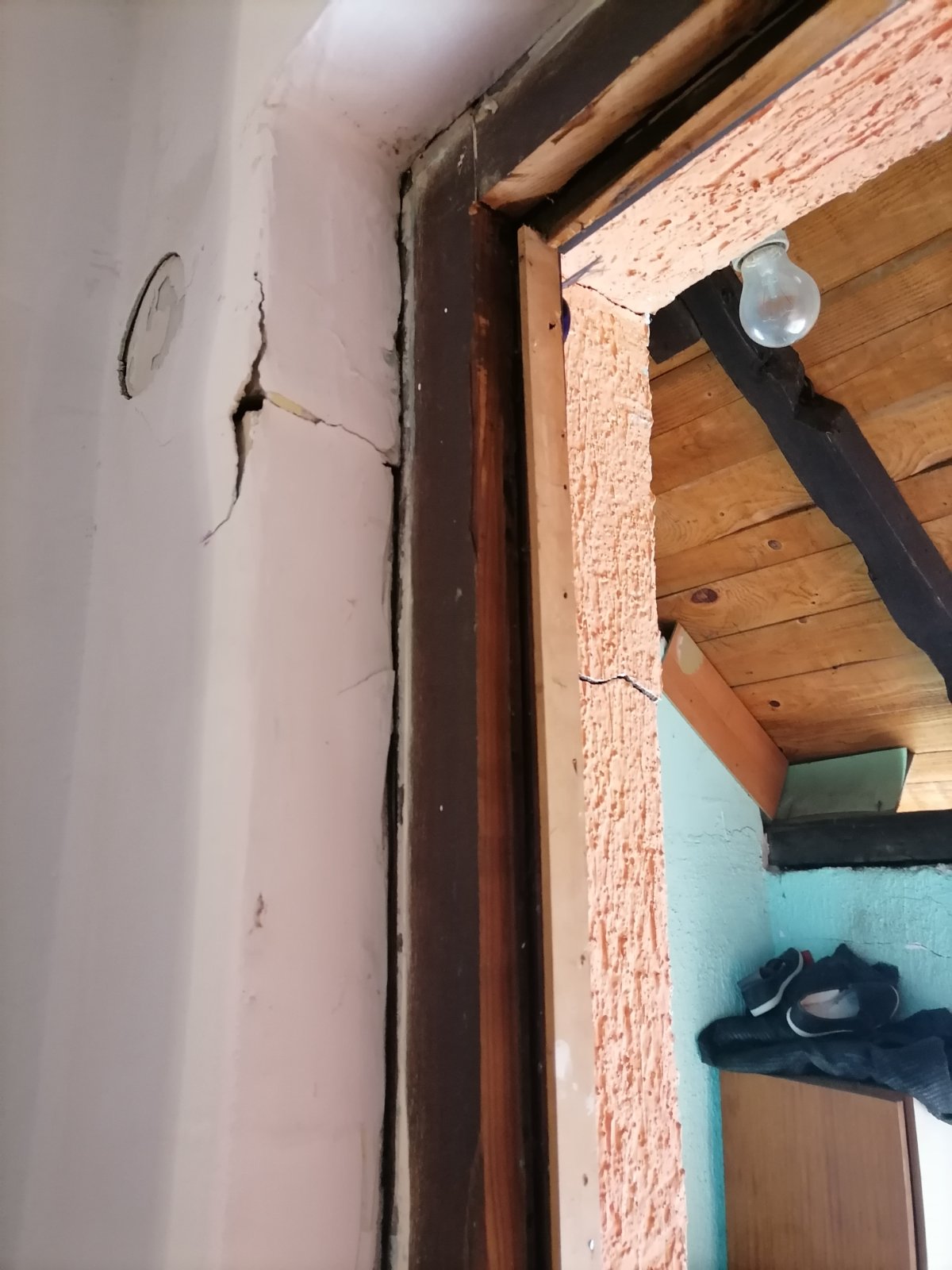
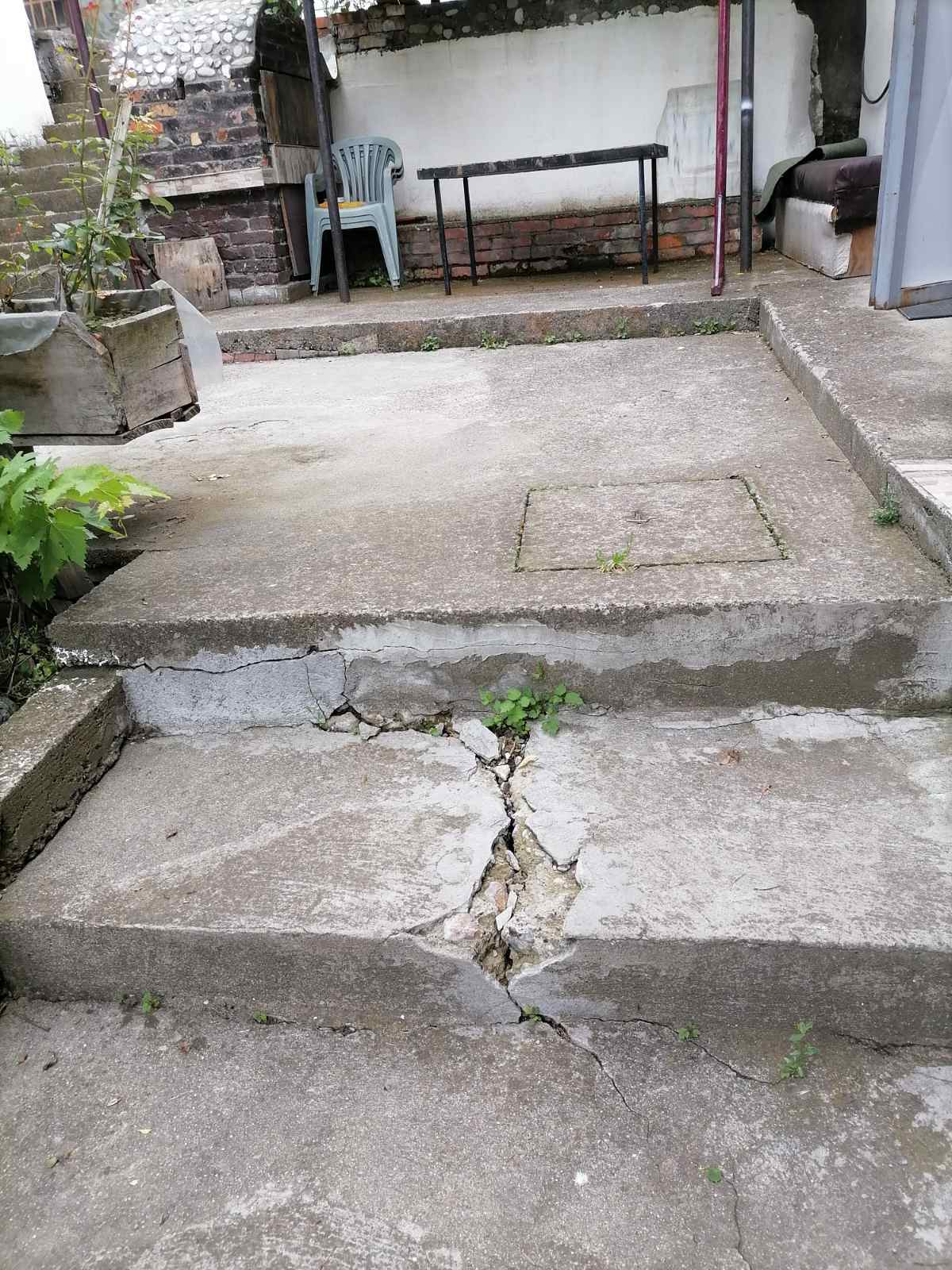
How much illogicality there is in the whole story is evidenced by the fact that this local woman asked the Urban Planning and Building Inspection whether she could raise a floor on an already existing building, and the inspector replied that she would not “because it is a subsidence zone”.
The same criterion does not seem to apply to Urban point d.o.o., which is building in the same subsidence zone. But the competent institutions assure that everything is according to the law and existing regulations.
The mayor’s assistant for the Spatial Planning and Environmental Protection Service, Omar Hadžić, says that the question of ownership is completely clear because “the Islamic Community Majlis of Tuzla is the only owner of the plots in question on which construction has been approved”, and that it is not about nationalized land.
POLICY OF NO-RESENTMENT FROM BIH
Answering the question of why the objections and petitions of hundreds of residents of Slatina were not taken into account, Hadžić says that in 2015 the Tuzla City Council adopted the Regulatory Plan of the spatial unit Slatina 1 in Tuzla, and that a public debate was held on the draft of that document, in which the citizens of the MZ Slatina also participated.
“Highlighted objections to the draft of the Regulatory Plan were considered by the holder of the draft, after which a proposal of the Regulatory Plan was drawn up, and it was submitted to the City Council for consideration and adoption,” answers Hadžić, adding that the urban planning consent was passed in accordance with that planning document.
However, the residents of Slatina deny this, explaining that, according to the tried and tested custom in Bosnia and Herzegovina, public hearings are held without informing the citizens, almost semi-illegal when it comes to the participation of foreigners.
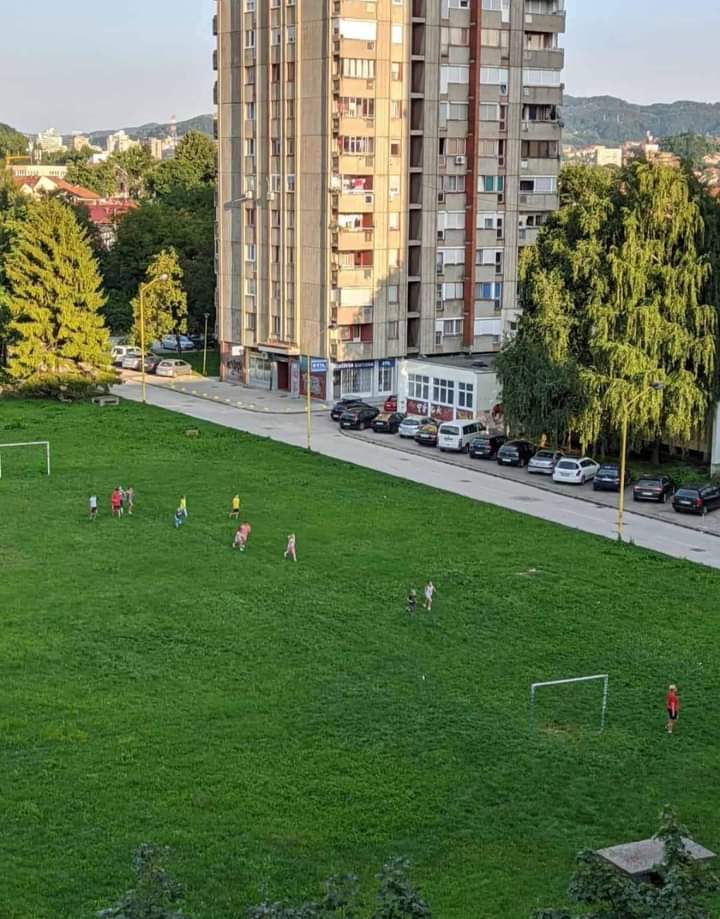
They also claim that they attended the public debate at the end of 2014 when the regulatory plans of Tuzla were changed, but their comments were not taken into account.
“The attitude of the tenants was clear even then – no construction is allowed in the area of Slatina due to the large number of people, due to the lack of urban planning and building standards for construction, plus the children’s playground has been there for 48 years – the only possible space where children and adults can recreate and socialize”, points out Almir Arnaut Beli.
He says that the citizens sent a letter in 2014 to the then-mayor of Tuzla, the city administration, the city council, and the commission for urban planning and the environment. None of them ever answered them.
Senka Hukić from Tuzla spent her childhood at the Marakana playground and, as she says, is emotionally attached to it.
“I don’t want to get involved in legal-property-construction matters because I don’t understand it, but I do understand what is beautiful and right for us and our children. Buildings spring up like mushrooms after the rain without any order, meaning or plan. A harmoniously built industrial city with reasonable people creates something called kitsch and mockery. The air quality in such a densely populated area is also a problem, especially in winter when tires are burned. Then the children can’t breathe, they suffocate, there have never been more children on inhalations, Ventolin and the like”, says Hukić.
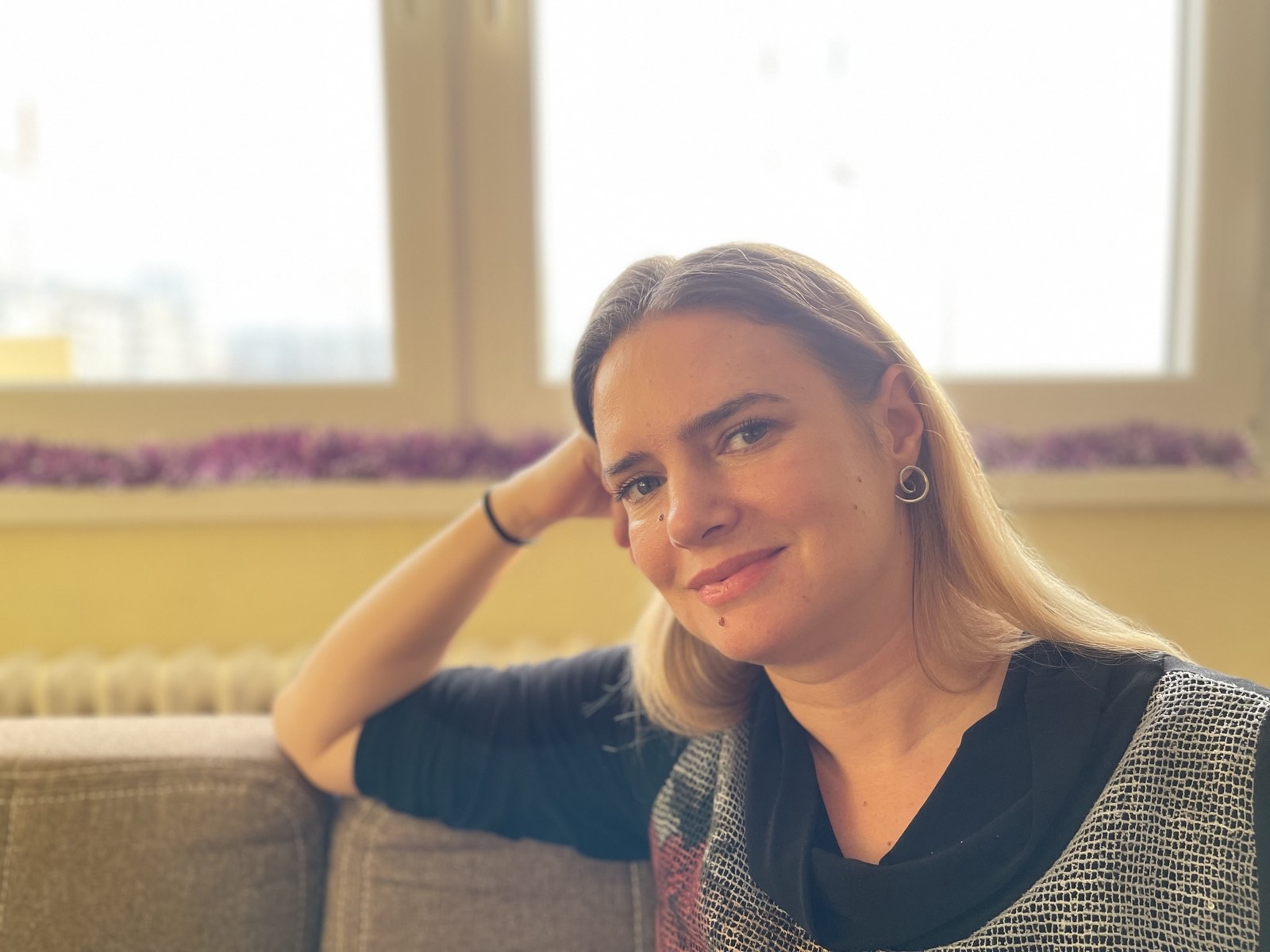
The long-term silence of the authorities, as well as politicians who, on the eve of every election, try to convince the voters that they represent their interests, speaks in favour of the fact that despite the problems of the citizens, they will choose a policy of not targeting the Islamic community in Bosnia and Herzegovina.
Knowing its influence on the voters, especially in the year of general elections, it is not difficult to conclude that the Marakana case will still have its epilogue in court.


